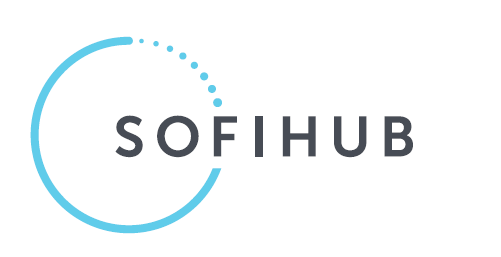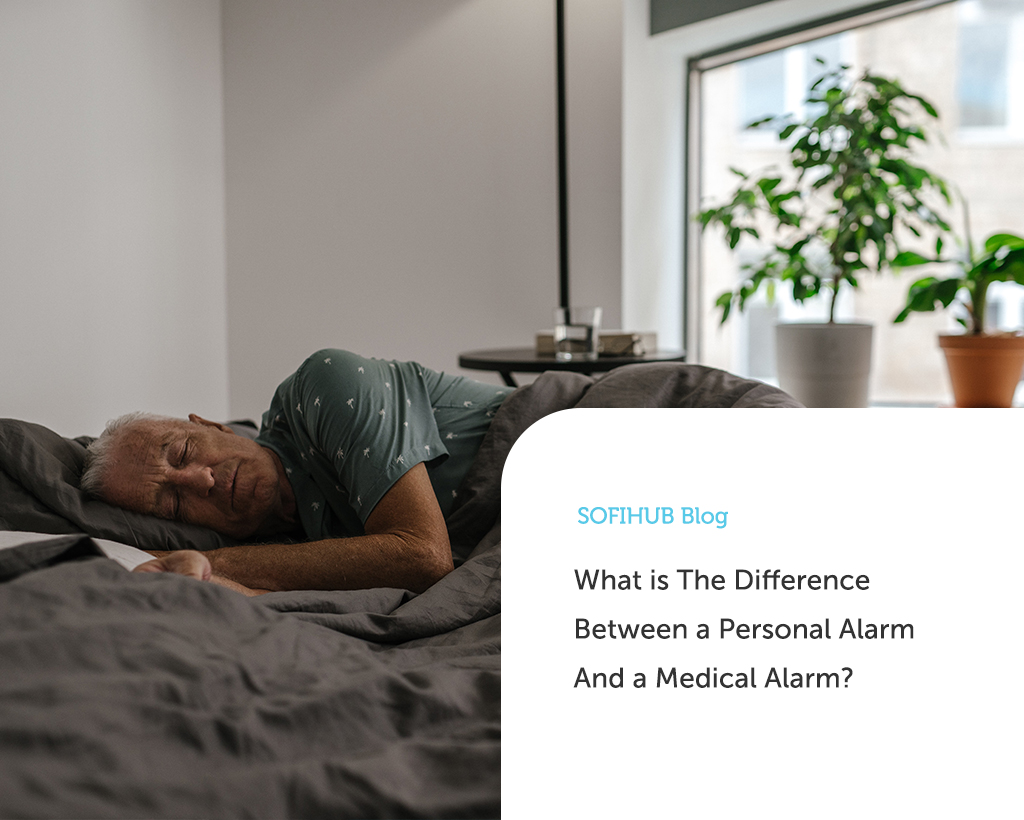What do a million older Australians living alone at home have in common with over 250,000 seniors in residential aged care facilities?
In an emergency, they both require assistance. And the best way to do so is with assisted and independent living technology.
Let’s look at the difference between a personal alarm and a medical alarm.
Personal alarms are a type of assisted-living technology that promotes independent living by enabling the caregiver to be notified should the wearer need assistance.
Residential aged care facilities use medical alarms as passive fall detection devices. They provide live falls and presence detection across multiple occupants in a room without requiring them to wear or do anything.
Let’s look at two of the best-known devices in these categories.
TEQ-Home (Personal Alarm):
TEQ-Home is comprised of a hub that’s centrally placed in the lounge or kitchen and eight motion sensors.
The sensors placed in frequently accessed areas around the home passively monitor the senior’s movements throughout the day.
TEQ-Home doesn’t require the elderly to learn or do anything new. It builds up a pattern of the person’s daily movements, recognises when something changes and alerts caregivers and family members in an emergency.
Think of it as a digital companion that keeps a watchful eye on your loved one’s movements and daily routines and reports back to designated caregivers when it detects changes in regular patterns.
Here are a few examples:
You can configure TEQ-home with three basic routines.
- Time for bed at night
- Wake up time in the morning
- Time in the bathroom
So, say seniors set the time in the bathroom to be an hour but if they spend 90 minutes, or wake up later than usual, TEQ-Home prompts them to press the device’s button to confirm they’re fine.
If they don’t respond after three reminders, the system messages carers and family members, asking them to check on the person.
TEQ-Home makes forgetting medication almost impossible. Sensors installed in medicine cabinets allow TEQ-Home to speak up and remind the user to take their medication if they do not open the cabinet at the usual time.
It reports back to carers and family members (via messages on a personal online portal) when seniors have missed important activities. If further prompts over five minutes go unanswered, it sends an SMS to caregivers and family members informing them that the person isn’t responding.
Another useful feature of TEQ-Home is its ability to function as a ‘falls alarm.’ It monitors daily routines passively and notifies caregivers if it detects anomalies such as falls or changes in regular movement patterns.
Even something as simple as walking out the back door and not returning, or stumbling and being unable to get back on your feet for a few minutes, could trigger an alert.
Personal alarms for the elderly like TEQ-Home empower seniors to live in their own homes for longer without having to rely on or intrude on the privacy of their family members.
Visit Sofihub to know more about TEQ-Home.
eazense Powered by SOFIHUB (Medical Alarm):
Fall detection devices, such as eazense, benefit aged care residents and facilities in several ways.
For one, it reduces the time to rush aid in case of an emergency.
eazense is a radar sensor offering passive, real-time falls detection for the elderly without the need for a wearable. It detects records and logs activity in a room (without cameras) and notifies carers in case of anomalies.
Anomalies could include irregular movements such as falls, seniors who do not return to their beds in time, or seniors who leave their rooms and do not return.
Besides fall detection, eazense monitors vital signs and alerts caregivers if values breach thresholds, reducing the need for regular health monitoring.
eazense provides residents with security while preserving their independence and privacy.
For caregivers, it reduces the number of unnecessary visits, resulting in significantly lower healthcare costs.
Leading Australian medical alarms, such as eazense, enable aged care facilities to provide care when it is most needed without the accompanying stress.
Visit SOFIHUB to know more about eazense.

